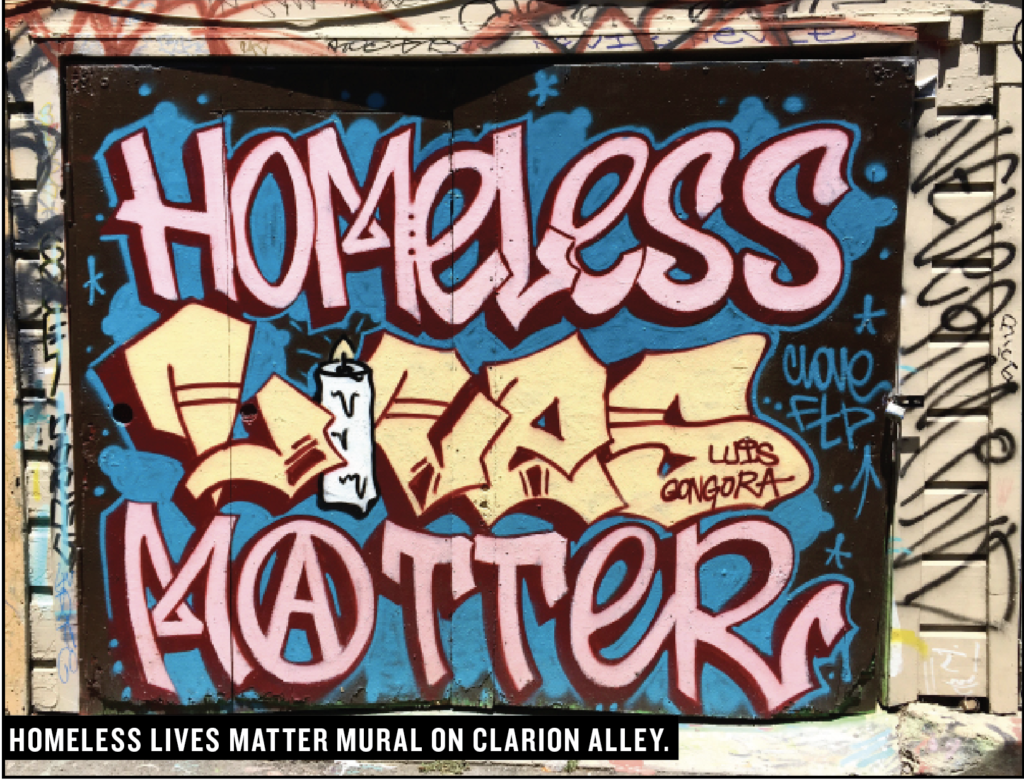It was a varied group of about 100 people with flickering candles who gathered in front of City Hall on December 21, the first night of winter. Several Catholic monks, rabbis, Buddhist teachers, Protestant ministers and Sufi murshids formed a semicircle. Others were social workers, health professionals, spiritual guides, and friends from the streets, with close personal or professional relationships with those who had passed away. United by belief in the sacredness of human life, these San Franciscans of every age and every walk of life came to pay respect to those they had never met, to those tormented souls world who were treated as unwanted children by an unfriendly world while they were still alive, who didn’t get any grain of sand with their name on it, until after they died.
This was the Interfaith Memorial Service for Our Homeless Dead.
The memorial service is an annual event commemorating the lives of those who died either homeless or in marginal housing situations. The San Francisco Interfaith Council and the SF Night Ministry conducted the service as part of a wider night of remembrance that the National Coalition for the Homeless organized.
One after another, priests of the different traditions offered words of wisdom and prayers in various sacred languages, and read out the names of the dead, almost 200 of them, each separated by the solemn sound of a gong.
Why do we need to honor all those homeless people who die leaving so many legacies but without any traces of being gone? Our rational mind is helpless in the face of eternity. It cannot answer our questions why and how even from the height of such a tiny period of time as billion a years from now. All that we love and hate, imagine and believe, is deeply grounded in little periods of time, a maximum just one billion years from now.
Our rational minds can’t help us understand the mystery of life. Our minds are too limited in time and space to know we have come here and where we will go. We do not know what is infinity in the outside world, but we can feel infinity inside. It is the unique universe that leaves our planet together with departing soul. Our minds are helpless in front of eternity, so having no other choice, we turn to our hearts for the answers. Every religion and faith teaches us that every human life is equally sacred, and souls of homeless people died on the streets of San Francisco are not any less precious than the souls of public figures, such as Muhammed Ali, David Bowie, Prince or Eli Wiesel. Listening to the prayers and the words of wisdom, I felt respect in the voice of my heart and the ideas of freedom.
Flashback to 10 years ago: The first time I faced the problem of dying homeless people during my internship at the Spiritual Care Department in Saint Francis Memorial Hospital. We tried to locate relatives or closed ones of Leicester Grey— an African American homeless man who slept somewhere under Bay Bridge. His only son was in prison, so this contact was closed. Among scanty pieces of information we had about Mr. Grey was the witness, the person who brought him to the hospital and identified himself as a friend of a friend. This person said that Mr. Grey spent most of his days playing with kids on the playground and was “the quietest person ever lived.”
The worldly possessions of Mr. Grey consisted of a duffle bag with clothing and a small case with documents. We turned to this case to continue our search for relatives. After we opened the case we found it being full of thank-you letters from rescued African children whom Mr. Grey sent regular donations for vital medications from his general assistance check of approximately $400.
But besides that, we found several dozen photos of the kids with thank you letters. As we discovered, Mr. Grey who lived on $400, found an opportunity to donate money on a monthly basis to provide healthcare for the African children and many of them were saved with his help. If God will forgive my irony here, I can mention that Leicester Grey deserved almost the same honor as Wolfgang Amadeus Mozart, whose body was dumped into community disposal pit. In San Francisco, the unclaimed bodies are cremated, and then the ashes are scattered into the bay.
Some people believe that death is similar to life—those who lived an honorable life deserve an honorable death. Mr. Grey, according to his friend, never did any harm to anybody. And who would dare to compare kindness of his good actions to those of any other housed person? ≠


